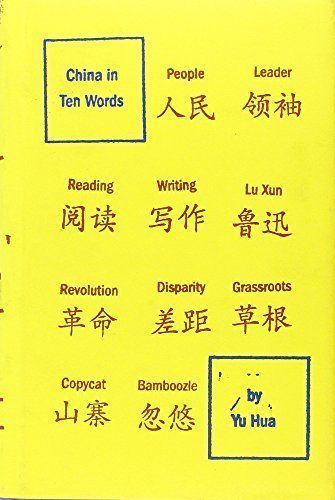
China in Ten Words
A first work of non-fiction available in English by the James Joyce Foundation Award-winning Chinese author of Brothers is presented through a framework of ten common phrases in the Chinese vernacular to offer insight into the nation's modern economic gaps, cultural transformations and ubiquitous practices of deception.
Reviews
lauren@laureniscompletelyfine
Elda Mengisto@eldaam
Katie Chua@kchua
Nadine @intlnadine
Bryan Alexander@bryanalexander
em 摇摇@earworm
Anita@anita-z
maryam@meowyam
João Quaresma @jmquaresma
Ben Radford@ben_radford
Evan Huang@eh04
Josh Clement@joshclement
Jeremy Boyd@jboydsplit
𝓬𝓱𝓮𝓻𝓲𝓮@caffeineand
Morgana@adachi